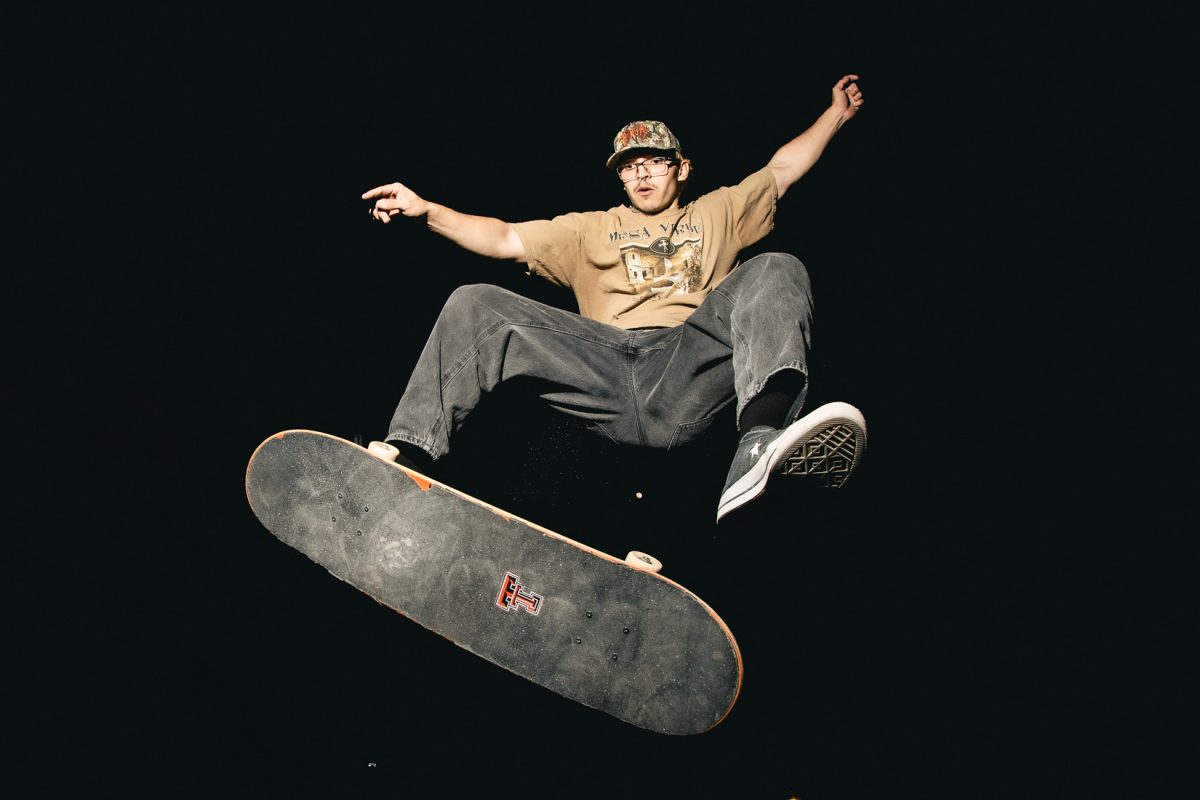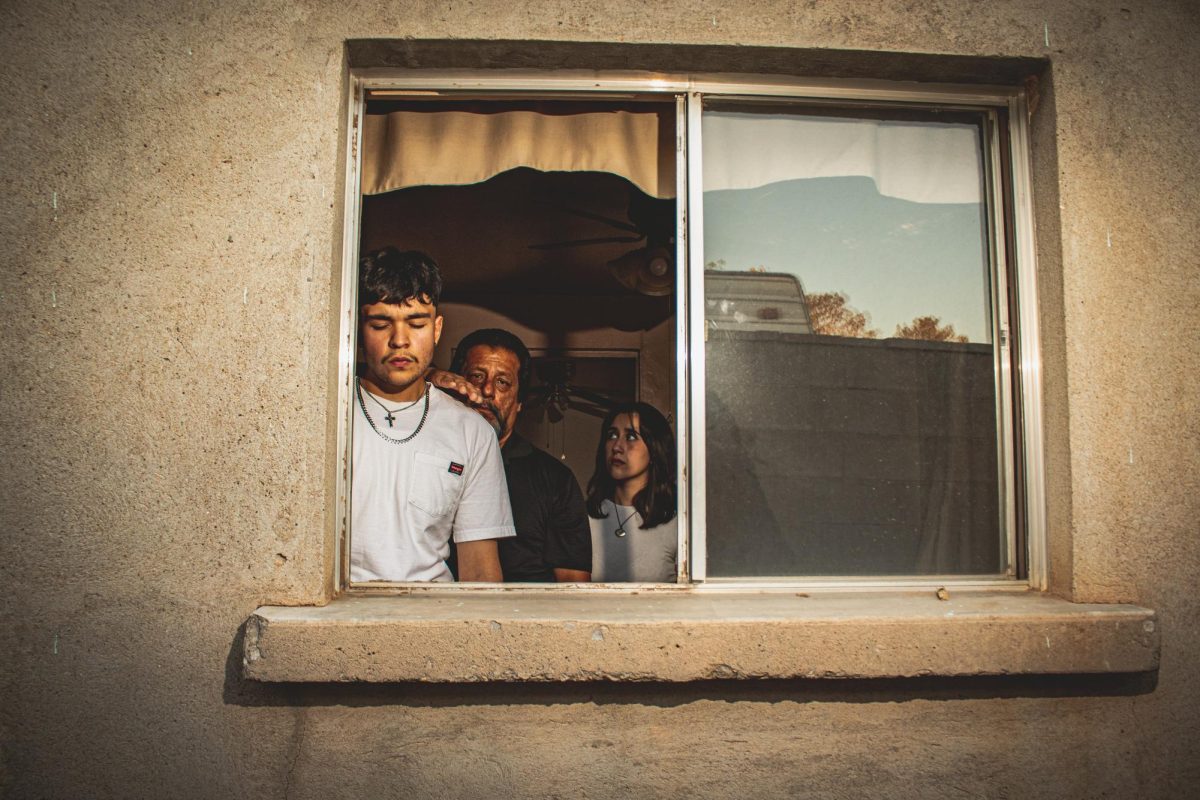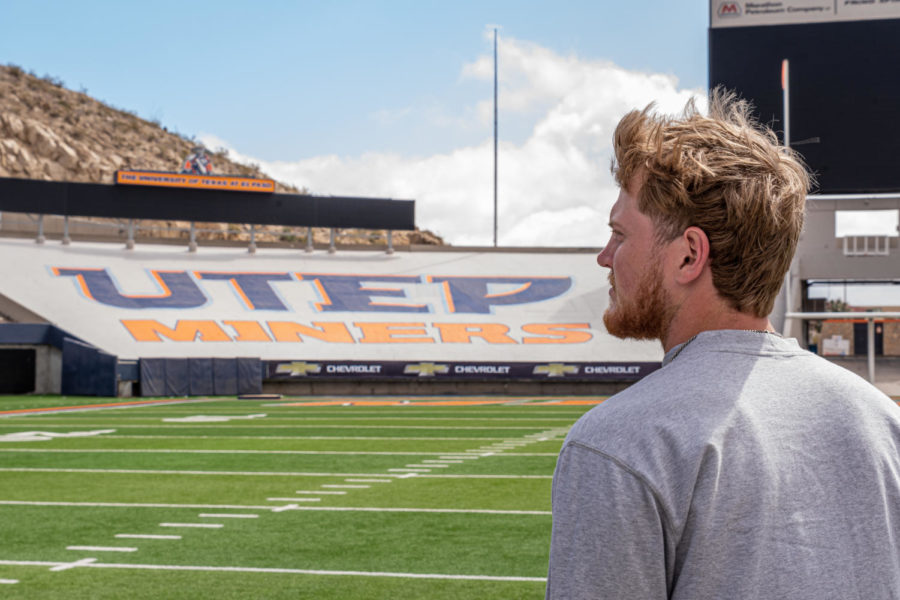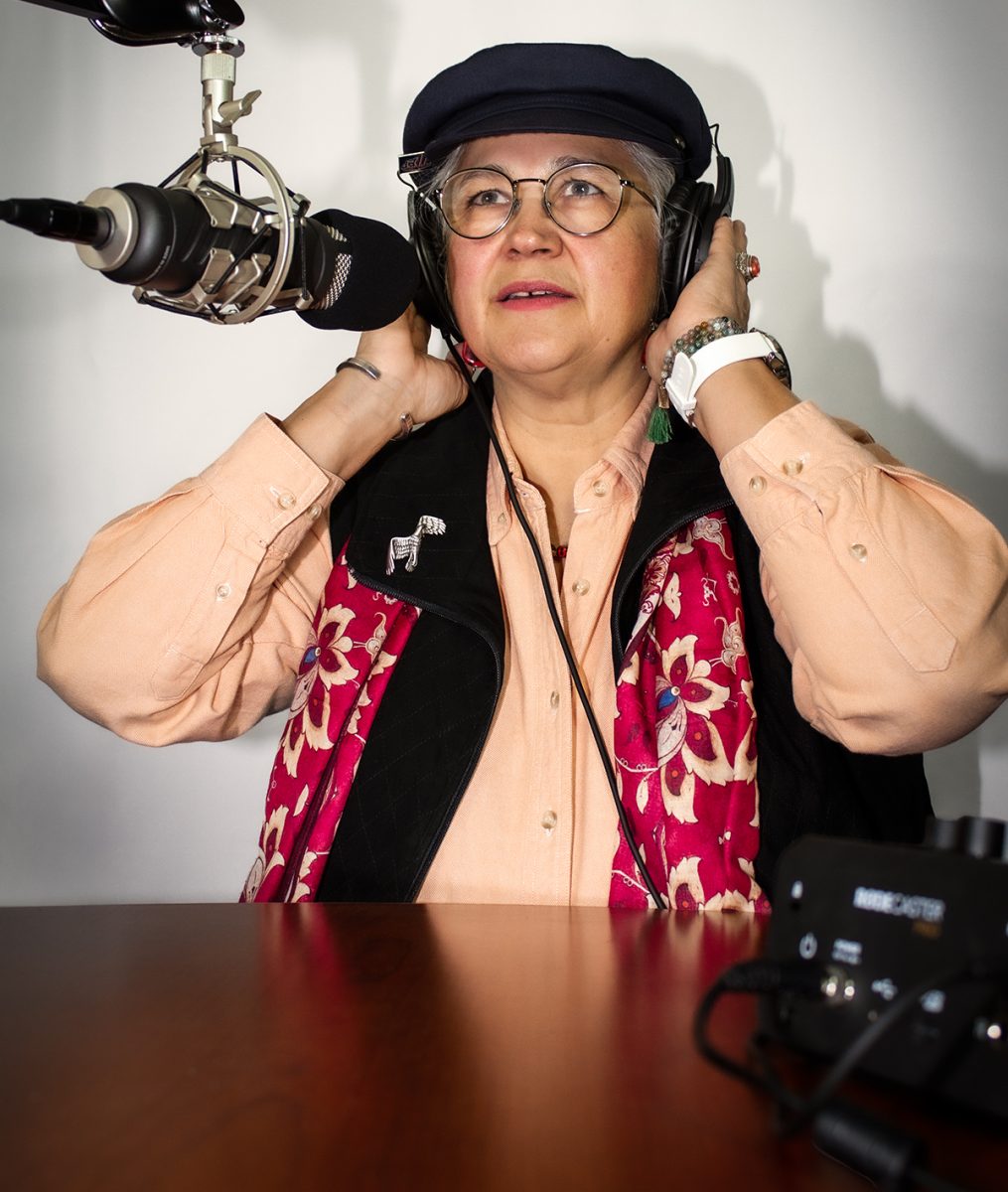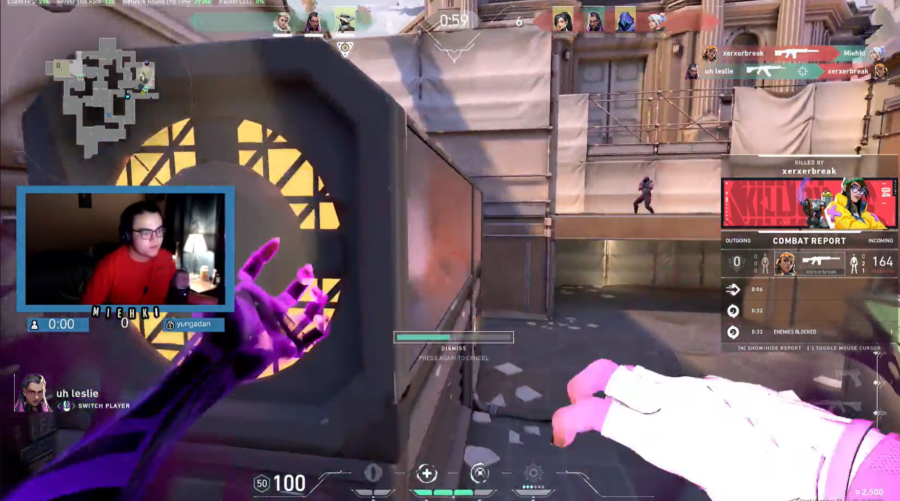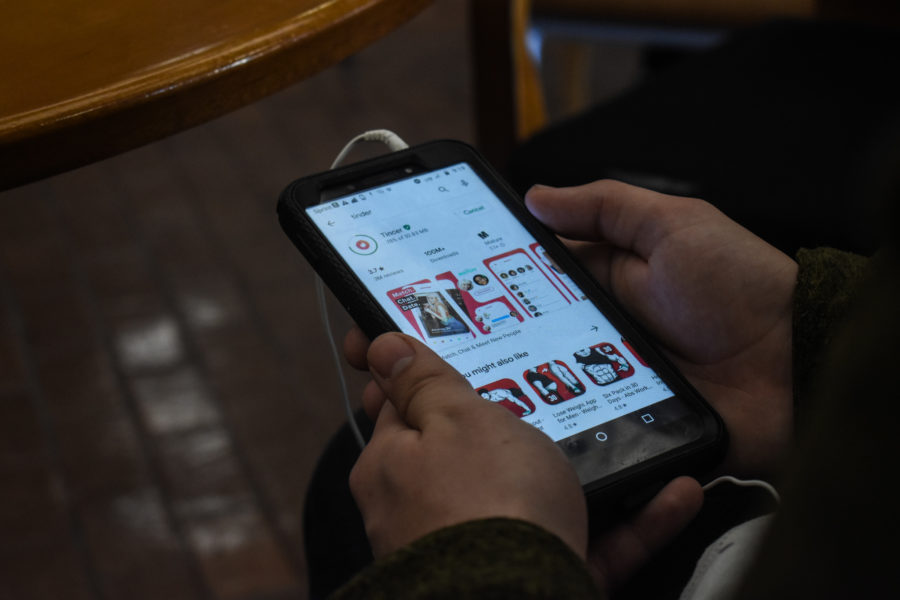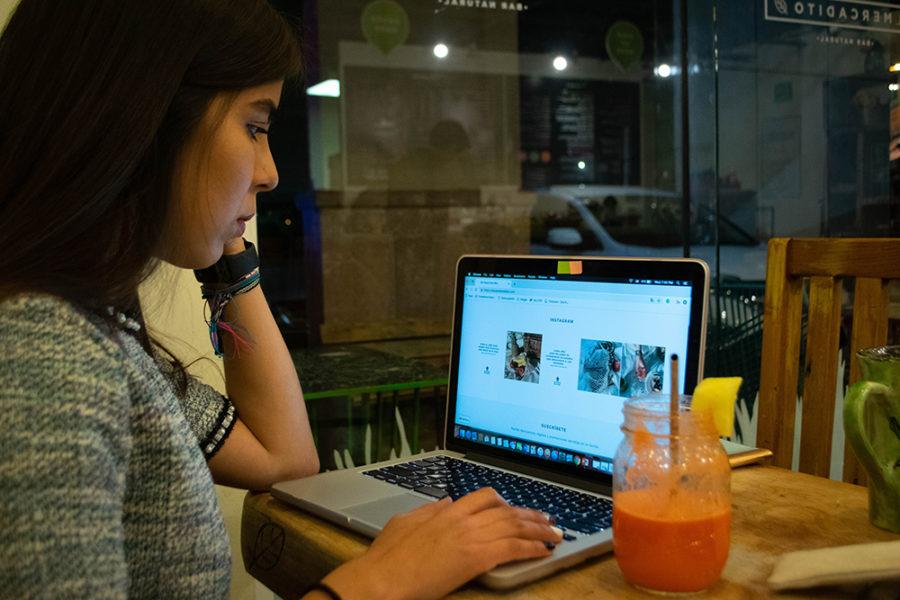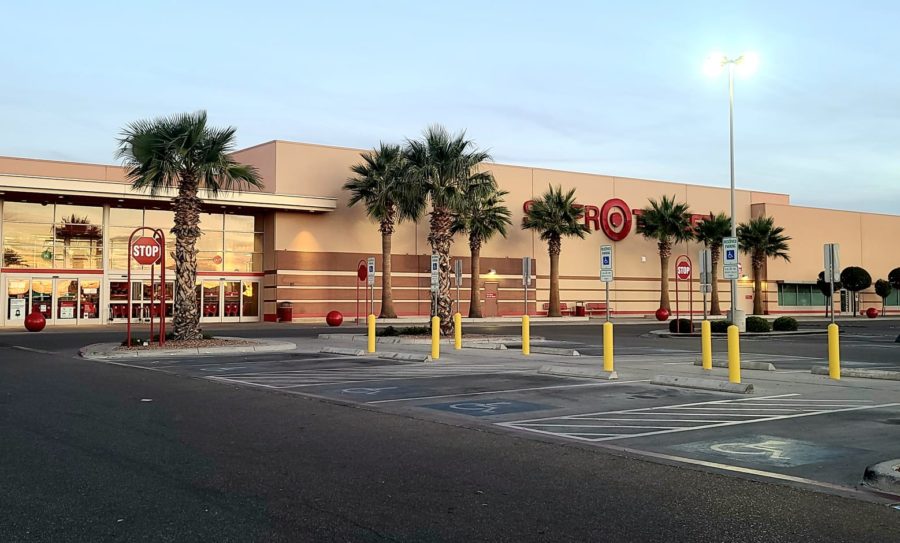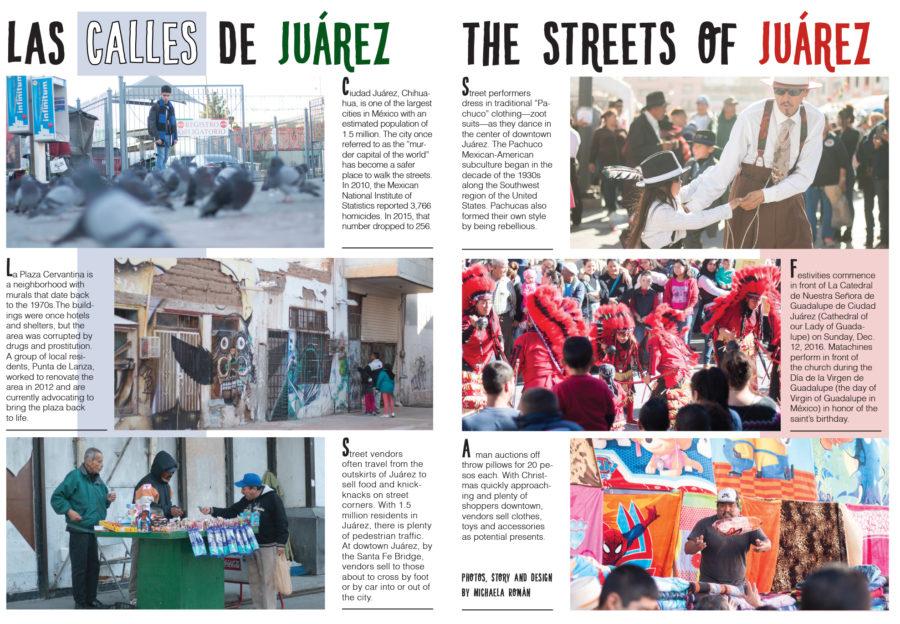By Christian Vasquez Photography By Andres Martinez
For five years, Moisés Esparza crossed the Stanton Street Port of Entry Bridge almost every day. Moisés was six months away from achieving his dream of graduating from UTEP with a double major in financial analysis and international business.
That dreamed stopped at 7:30 a.m. on Monday, June 27, 2016, as Moisés crossed the SENTRI, the Secure Electronic Network for Travelers Rapid Inspection, a commuter lane that requires rigorous pre-screening.
With a finance test to prepare for, Moisés crossed the bridge in his light-brown Ford Explorer, SENTRI card in hand and his white iPhone in the cup holder with the built-in recorder turned on.
The following conversation is taken from that recording.
“Good morning,” says the Customs and Border Patrol Officer Peter Salas.
“Morning sir,” Moisés replies.
“Where are you going?”
“To school.”
“Are you recording?” the officer asks, noticing the iPhone.
This is not the first-time Moisés recorded his crossing, he hoped to capture an interaction with a particular Customs and Border Protection agent–Salas in fact.
According to Moisés, Salas didn’t like him. He didn’t like that Moisés had an F1 visa, which allowed him to work and live in the U.S. Moisés says that Salas would even make comments about his hairstyle and glasses. For two years, Moisés endured Salas’ comments about Moisés’ hairstyle and glasses. Moisés wanted to record the interactions to send them to the CBP’s internal affairs.
Moisés’ experience is not unique. In May 2016, the American Civil Liberties Union of New Mexico Regional Center for Border Rights and the ACLU Foundation of Texas and the Southern Border Communities Coalition filed an administrative complaint against Customs and Border Protection on behalf of 15 individuals, including an 11-year-old U.S. citizen, for the “use of excessive force, verbal abuses, humiliating searches and intimidation to coerce individuals into surrendering their legal rights.”
A border-wide campaign called “Dignity Crossing” documented abuses by CBP officers and agents from late 2014 to early 2016. They found 150 cases along points of entry in Arizona, New Mexico and Texas.
Around 30 of these cases occurred in El Paso and 10 had individuals willing to go forth with legal action and were severe enough to be included in the ALCU’s administrative complaint.
Moisés tells the officer that yes he is recording.
“Can you delete it?” the CBP officer says.
Moisés replies “Uh no. I was told that I can do this in case, on the border, they treat me unfairly.”
Salas directs Moisés to pull over to the side and again asks him to turn off the recording.
Moisés replies “No.”
“No?”
“I want to speak to your supervisor. How you are treating me so far is (unfair).”
To Moisés, this wasn’t just about being asked to delete his recording. This was about two years of verbal humiliation by Salas.
The fact that Moisés knew he could ask to speak with a supervisor is not well known. One of the administrative complaints by the ACLU is that CBP officers either discourage people from filing a complaint or do not inform individuals crossing the border about how to do so. It’s one thing to know how to file a complaint, but it’s another altogether to go through with it. Cynthia Pompa, the field organizer for the New Mexico’s ACLU Regional Center for Border Rights, says one of the issues that border crossers run into when filing a complaint is the fear of retaliation.
“This is the reality that is unique to our border, we encounter the same law enforcement daily and that doesn’t happen in other parts of the country,” Pompa says. “So the fear of retaliation is very present, especially if you are putting at risk seeing your family, going to work or going to school—or the idea that you’re putting that at risk.”
After Moisés requests to speak with a supervisor, the CBP agent says “No.”
Moisés begins to speak louder, telling the CBP agent that he wants to speak with his supervisor, and explains that he has the right to do so. The agent repeatedly says “No. No.”
This back and forth continues when another agent, Frausto, walks next to the car.
After Moisés explains once again that he is being treated unfairly, Frausto replies in Spanish “But who was treating you unfairly? I mean, if you started recording without a reason, if you weren’t given that unjust treatment yet. I don’t see a reason why you were recording.”
If a CBP agent wants to inspect a vehicle, they have every right to do so without filing a warrant, or without a reason at all.
“We’re not targeting you, everybody–you see this car over here? The same thing that we’re doing right here with you is the exact same thing we are going to do with them,” Frausto says.
“Yeah, but what he said is ‘delete the recording’ and that is illegal, that is extortion.”
Frausto laughs, “No it’s not.”
Moisés says that the SENTRI lane office never told him that he could record, but at that moment, he was frightened and not thinking clearly.
The supervisor, Ylsea Gardea, then comes up to the car. Salas steps back from the driver’s door into the back door on the driver’s side. By this time, there are three more officers on the passenger’s side.
“Go ahead and step out of your car,” Gardea says, walking up to the driver’s side. “Turn off–leave your phone inside the vehicle please.”
“No ma’am, I cannot do that,” says Moisés.
“You’re not a complainant. I need you to step out, open up your car.”
Gardea got up on the SUV’s foot rail, and Moisés, afraid that she was going to try to force the door open, puts his hand over the locks on the armrest.
“Ma’am, you cannot do this unless I do it. Ma’am what you are doing?”
Gardea steps back away from the SUV.
“Don’t you touch my hand! Don’t touch my–don’t,“ she says.
Salas steps in and yells, “You are not going to assault my supervisor!”
“I’m not assaulting your supervisor–No, no no-HELP. HELP!.”
Salas grabs Moisés’ neck; Gardea rushes in and tries to grab the still-recording iPhone. Moisés, still screaming for help, grabs the phone with his right arm and puts it behind his back, his left hand struggling to get Salas off his neck. The SUV honks repeatedly over the screams for help and shouts of “stop resisting” by a CBP officer named Peña.
They wrestle Moisés out of his car and onto the ground, arresting him facedown with handcuffs behind his back.
Moisés loses his hold on his phone; it’s picked up and the recording is stopped by a CBP officer.
Three officers hold Moisés to the ground. One of them, CBP officer Reyes, according to Moisés, stands up and kicks him in the back of the head.
“After that, they started taking out my wallet. Ylsea Gardea took out my wallet and stood in front of me, showing it to me and said ‘Oh, you have money,’ then she leaves,” Moisés says. “Then Reyes, standing in front of me, squats and says ‘Hey, listen to me. You have no rights in here.’”
Moisés is taken into an interrogation room, Peña orders Moisés to take his shirt and shoes off. Reyes, Salas and Peña stand outside the door, taunting Moisés, telling him he is not going to be allowed back into the U.S. for 10 years. Later, an officer named Smith, along with Gardea enters the room and Moisés explains what happened to Smith.
Moisés says that Smith told him, ‘If an authority tells you to do it, you must do it because that is when people die.’ After this statement, Moisés says he felt scared.
Moisés is told they weren’t planning on doing anything to him and he shouldn’t worry.
Smith later asks for the password for his cell phone. In reply, Moisés asks for his lawyer. The request is denied. Later, two officers come in and ask again for access to his cell phone and laptop. Moisés says that he will after he speaks with a lawyer. He is told that if he doesn’t comply he will face terrorism charges. Fearing those charges, Moisés gives them access to both the laptop and iPhone.
Moisés is taken to the Paso Del Norte CBP office at 6 p.m., and is told he will be charged with assault. He again asks for a lawyer and is told if he speaks to a lawyer he will not be able to speak with the agents, Moisés replies he is fine with that. He is not allowed to speak to an attorney until three days later.
He is taken to the downtown El Paso County Detention Facility, where Moisés spends the next two months in jail. To pass the time he works as a janitor and teaches his fellow inmates English.
Pompa explains that in order to find cases of abuse, organizations have to rely on campaigns because the CBP does not keep records of people they stop and interrogate, just individuals they arrest.
“So, for example, if somebody is driving by frequently through these checkpoints and they get questioned–they get sent to secondary (inspection) for any reason, the border patrol does not record. Was this a Hispanic person, was it a male or female?” Pompa says. “That’s why we launch campaigns or do outreach work so people know that we are here and that they can actually challenge that and they can call us to report it.”
The CBP agency also does not provide data on reform actions to address institutional shortcomings, according to Pompa.
“I think we have heard commitments to reforming the agency,” Pompa says. “I think that a lot of people are talking about how there is a culture of abuse at the agency, unprofessionalism, however, just like specific steps I don’t think we’ve seen. We don’t have a clear sense of whether agents are being held accountable for their actions. There’s not a clear complaint process, people don’t know how to complain or they are intimidated if they want to do that.”
The number of Border Patrol agents grew from 9,200 in 2001 to 21,000 agents by the first term of the Obama administration. The CBP became 21 percent of the Department of Homeland Security’s budget in 2015, and the largest federal agency, as well as police force, in the country. But the rapid expansion did not seamlessly employ, train and place agents in the field. Instead, many agents went out into the field before their background checks were cleared. Stories about CBP officers smuggling drugs, undocumented individuals or even working for the cartels have risen alongside the hiring surge.
A former head of internal affairs at CBP, James Tomsheck, released a complaint in November 2011 stating that because he would not help cover up abuse and corruption; the agency retaliated against him through his performance review. Tomsheck believes that between 5 to 10 percent of the force was either involved in corrupt activity or was at a certain point.
“When President Obama tried to (create guidelines) as a response to everything else that is happening in the country in terms of racial discrimination and racial tension and he says all law enforcement needs to follow these guidelines, CBP’s always excluded from that conversation,” says Pompa.
Moisés is told by his lawyer that if he signs some papers, he will be released with only a misdemeanor charge, and he will be allowed to fight for his visa. He signs the papers and is kept in jail for six more days, and is told he cannot go to immigration because he is not from the United States. Moisés is released at the Paso Del Norte Bridge on Aug. 24, 2016, 58 days after his initial crossing.
“They screwed five years of my life that I tried to get my degree,” Moisés says. “I was getting two degrees and I cannot do it anymore, and it’s because a CBP has been bothering me and my family for two years.”
Moisés is currently working at Alt Mutual Funds, and he plans to go to the Autonomous University of Ciudad Juárez for a degree in finance. His dreams to complete his degrees and travel the world are on hold for the moment, but he has not forgotten what happened to him and is still talking to civil rights organizations.






